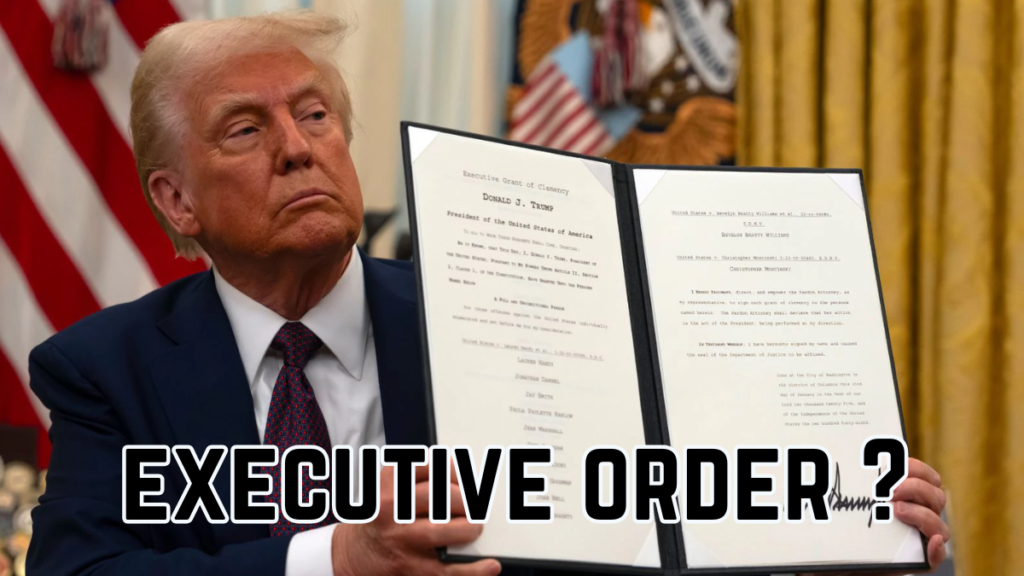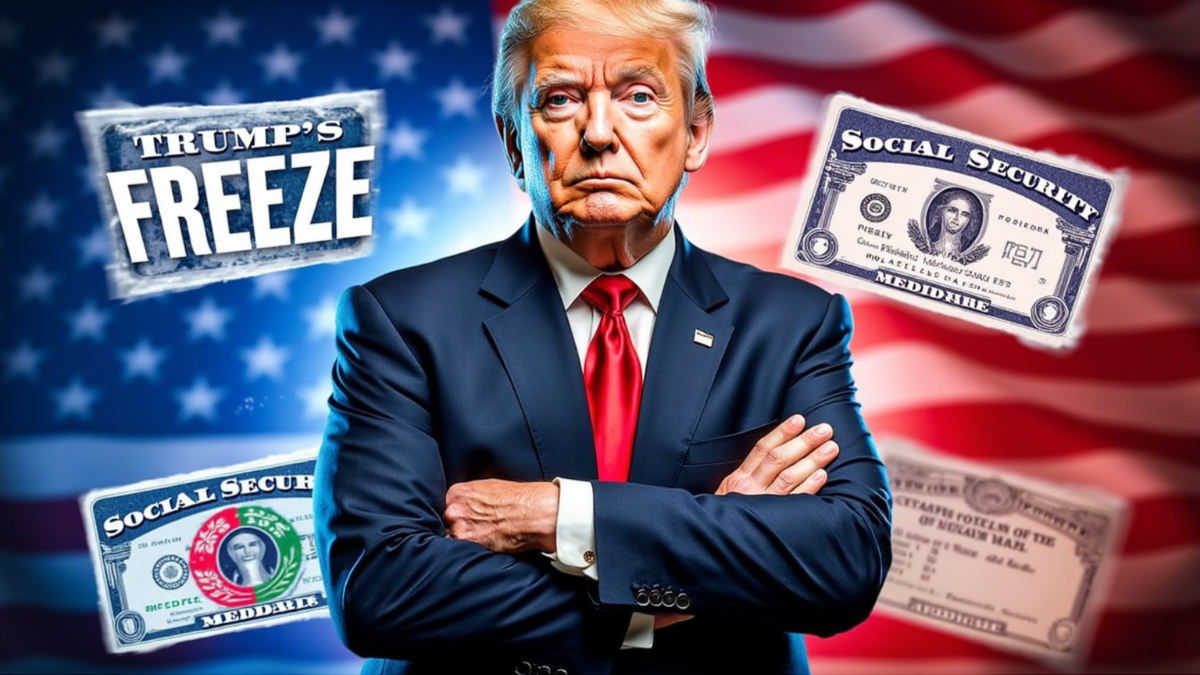Dispute over government aid programs due to Trump administration’s executive order, court stays it
An executive order issued by the administration of former President Donald Trump has sparked widespread debate in the US. Under this order, a temporary ban has been imposed on the financial distribution of several government grants and loan programs.
This move was expected to affect essential services such as Social Security, Medicare and SNAP (food stamps). However, a federal judge has temporarily stayed this order, raising new questions about the future of this decision.
What is the purpose of the executive order?

The main purpose of this order brought by the Trump administration is to review government spending and ensure that all programs are in line with the administration’s policies.
- Review of government programs – Under the order, federal agencies have been given the authority to assess how government money is being spent and whether it is in line with planned objectives.
- Temporary stop, not permanent cut – Officials say that this order is not a permanent budget cut, but a temporary step to check expenditures under policy changes.
- Selective stop – This order does not apply to all federal programs. Some schemes are clearly exempted from this ban.
Which government schemes were affected?
The biggest question after this order was whether it would affect essential government programs like Social Security, Medicare and SNAP (Food Stamp)?
Relief news – no impact on essential schemes
The Federal Budget Management Office (OMB) has clarified that this order will not affect Social Security, Medicare and other mandatory assistance programs.
- Social Security and Medicare – The government has said that this order will not harm the beneficiaries of these schemes in any way and payments will continue as usual.
- SNAP (Food Stamp) and Medicaid – These schemes come under mandatory assistance programs in the federal budget, so the ban will not apply to them.
- Other important schemes – Programs like Pell Grant (scholarship), student loans, funds for small businesses and rent assistance will also be protected from this ban.
Administration’s intention behind implementing the order
The Trump administration says that this order is a step taken to improve government spending and strengthen federal policies.
The administration gave three main reasons for this ban:
- Ensuring the effectiveness of government spending – This review will reveal which programs are not using government money properly.
- Matching plans in line with policies – The administration said that plans that include issues related to diversity, climate change and other progressive agenda could be reviewed and possible cuts could be made.
- Reducing federal spending – Another purpose of this order is to reduce the national debt and focus government resources on other priorities.
Court stay and legal battle
Soon after the Trump administration issued the order, nonprofit organizations and political leaders challenged this decision in court.
- US District Judge Loren L. AliKhan put a temporary stay on this order.
- The court has given this decision to remain in force till 3 February 2025, which has stopped the administration from implementing it for the time being.
- Due to this decision, the Trump administration will have to present new arguments to legally validate this order.
Political reactions

This decision received sharp reactions from political parties.
In opposition to the order
- Senate Minority Leader Chuck Schumer described this move as “a stealth attempt to end government assistance programs”.
- House Minority Leader Hakeem Jeffries warned that this order could harm millions of Americans.
- Texas Attorney Christian D. Menefee argued that the President does not have the legal right to stop the budget approved by Congress.
In support of the order
- White House Press Secretary Caroline Leavitt defended the order as a move to ensure transparency and accountability in federal spending.
- Trump administration officials reiterated that programs such as Social Security and Medicare would not be affected by the moratorium.
What happens next?
For now, the court has temporarily halted the order, but the legal battle is far from over.
Keep an eye on the following developments:
- Further court hearings – The court stay will expire on February 3, 2025, after which the Trump administration can challenge the order in a higher court.
- Congressional role – Lawmakers can introduce new legislation to stop these types of executive orders.
- State and local impact – Even though major aid plans are safe, financial support for state and local governments could be affected.
Conclusion
For now, essential aid programs like Social Security, Medicare, and SNAP are safe, but the debate over federal spending is far from over.
The court’s stay on this policy of the Trump administration has certainly provided temporary relief, but the legal and political battle over it may intensify in the coming months.
FAQs
Is Trump planning to freeze Social Security, SNAP, and Medicare?
There are reports suggesting potential cuts or freezes, but official policy details remain uncertain.
How would a freeze impact Social Security recipients?
A freeze could halt benefit increases, affecting millions who rely on Social Security for financial stability.
What changes could happen to SNAP benefits?
Possible reductions or stricter eligibility requirements could limit food assistance for low-income individuals and families.



